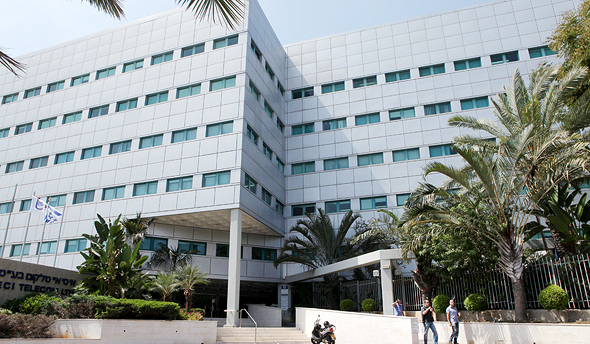Communication Equipment Firm ECI Confirms Plans for London IPO
ECI seeks to raise around $230 million in new and existing shares, according to the company’s registration documents
Israel-based telecommunications equipment supplier ECI Telecom Ltd. confirmed its intention to list on the London Stock Exchange. In a Thursday morning announcement, ECI said that its IPO registration documents had been approved by the U.K. watchdog, the Financial Conduct Authority (FCA).
For daily updates, subscribe to our newsletter by clicking here.
Calcalist first reported that ECI was planning a London IPO in July, citing a person familiar with the matter.
 ECI headquarters. Photo: Amit Sha'al
ECI headquarters. Photo: Amit Sha'al ECI seeks to raise around $230 million in new and existing shares, according to the company’s registration documents.
ECI contracted Barclays PLC and UBS Group AG as bookrunners, according to the documents.
- ECI Telecom to List on London Stock Exchange
- Israel’s ECI Telecom Challenged by Low Profitability in India, Strong Shekel
- Trading Firm Plus500 Upgrades to Main Market of London Exchange
Founded in 1961, ECI was considered an industry leader in the 1990s, employing around 6,000 people and boasting a market capitalization of as much as $4 billion. But diminishing revenues led the company to sell or spin off some of its subsidiaries over the years. In 2007, a takeover bid saw private equity firm Ashmore Investment Management Ltd. pay $1.23 billion for a 90% stake in the company, while Israeli businessman Shaul Shani acquired the remaining 10%. In 2014, Shani bought Ashmore's stake.
According to the prospectus submitted by ECI, in the first half of 2018, ECI reported $198 million in sales, representing a 24% growth compared with the same period in 2017, when it reported $160 million in sales. ECI’s EBITDA also went up from $13 million in the first half of 2017 to $30 million in the first half of 2018. But the steady rise in sales did not help the company become profitable.ECI had an $18.8 deficit in the first half of 2018, compared with 34 million in the same period of 2017.
In December 2017 the company announced it will let go 100 of its Israeli employees, citing the burden of global competition, a decline in governmental support, and the strong Israeli currency as the reasons for the decision.



